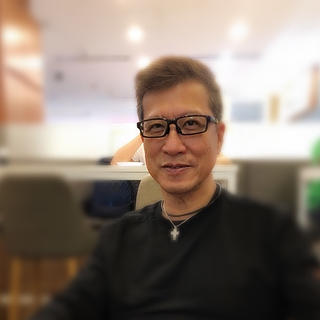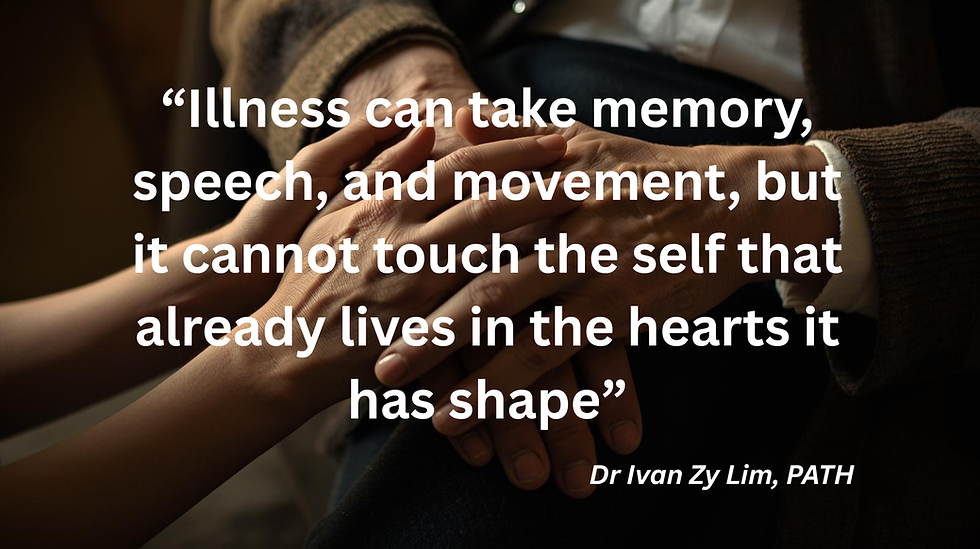What My Father’s Absence Taught Me
- Ivan Lim
- May 31, 2025
- 3 min read
Updated: Jun 15, 2025

Twenty-three years ago today, my father was called home.
He left quietly. No long goodbye. No last life lesson wrapped in perfect timing. Just a final breath, and the echo it left behind.
I used to think loss was an event. Now I know it’s a curriculum.
Because when a father disappears from your life, by death, distance, or silence, you don’t just grieve who he was. You begin learning who you must become.
Absence Can Be a Mirror
In the early years, I looked for him in other men.
Mentors. Teachers. Spiritual guides. Some filled the space with wisdom. Others reminded me that no one could.
But in his absence, I saw myself more clearly. Without his presence to lean on or rebel against, I had to define who I was. I couldn’t measure myself against his expectations, I had to build my own.
That kind of self-definition doesn’t come easily. It’s forged in lonely places. In moments when you ache for guidance but hear only your own breath. In those spaces, I learned to trust the quiet. To listen inward.
I Learned Presence by Its Opposite
When someone isn’t there, you learn to pay attention to what was missing.
I noticed the kinds of conversations we never had. The moments he didn’t witness. The words I waited for that never came.
And strangely, that awareness shaped how I now show up, as a psychologist, as a husband, as a friend. To be the person who listens long after the words run out. To hold space for pain without fleeing from it.
His absence taught me how precious presence is.
I Learned to Hold Questions Without Answers
There are questions I’ll never get to ask him:
Did you ever feel proud of me?
What were you afraid of?
What dreams did you bury under duty?
And yet, in living without those answers, I’ve learned to hold space for uncertainty, in others and in myself. In therapy, I’ve sat with people who will never get closure. Who will never hear “I’m sorry,” or “I forgive you.” And because I’ve lived that myself, I don’t rush them to resolution.
His absence trained me in emotional patience, the ability to sit with the unsaid, the unfinished, and the unknowable.
I Learned How to Love Without Proof
When someone leaves before saying everything you needed to hear, you face a choice: Do I close my heart, or do I keep it open?
I chose to stay open.
I had to believe he loved me, even if he didn’t always know how to show it. I had to believe his quiet wasn’t indifference, but struggle. That his distance wasn’t rejection, but limitation. That he gave me what he could, and that it was enough to begin.
Loving someone in absence is a different kind of devotion. It’s love without transaction. Love without confirmation. Love that matures in grief and deepens in mystery.
I Learned How to Father Myself
No one tells you this when your father dies: eventually, you become the father you needed.
Not perfectly. Not all at once. But steadily.
I learned to comfort myself. To speak gently to the younger parts of me still aching for protection. I learned to build routines, set boundaries, care for my body, and calm my mind, the things a father might have modeled.
And now, when I guide others, clients, friends, younger men, I’m not just passing on what I was given. I’m passing on what I had to learn to survive.
His absence didn’t make me less. It made me responsible for my own becoming.
Final Thoughts
Grief is not always loud. Sometimes it’s a quiet reorganization of the soul.
My father’s absence rearranged me.
It taught me to stay when it’s hard. To listen deeply. To father myself. To love even without certainty.
And maybe that’s the strange grace of absence — it leaves behind space. And in that space, something sacred can grow.
Reflection Questions for You
Where in your life are you still shaped by someone’s absence?
What kind of presence has that pain taught you to offer others?
In what ways have you fathered, mentored, or comforted yourself through the years?
With you in this quiet remembering,
Dr. Ivan Zy Lim
Son. Student of Absence. Still learning how to stay.





Comments